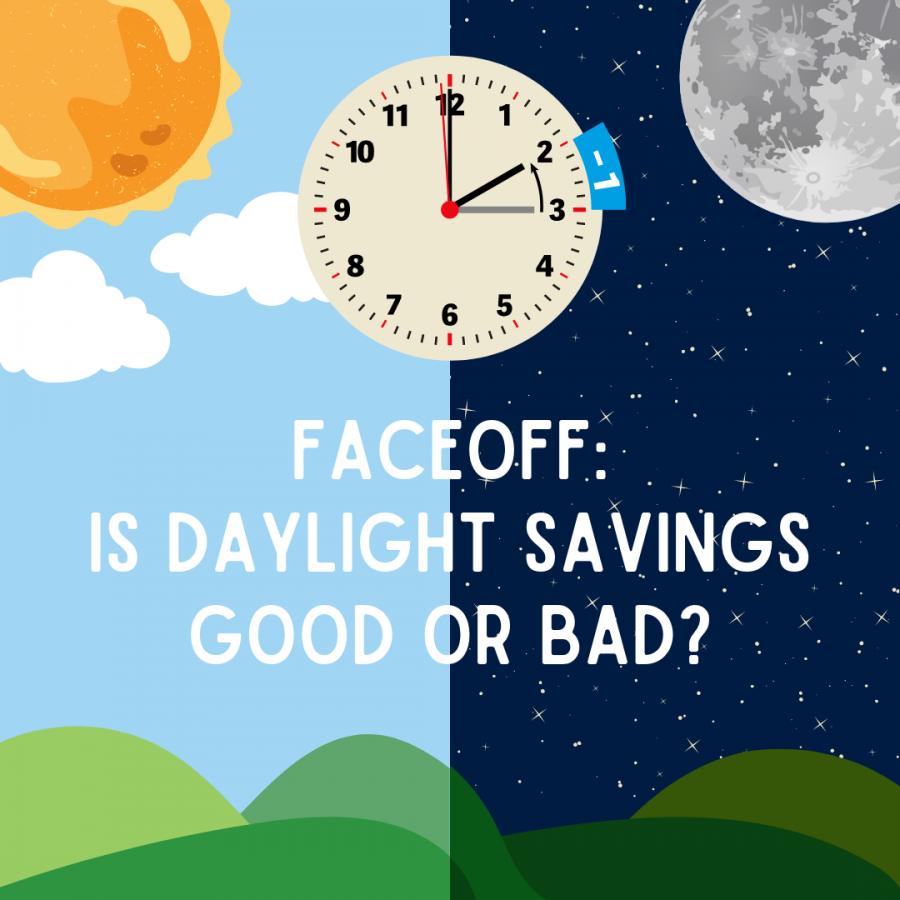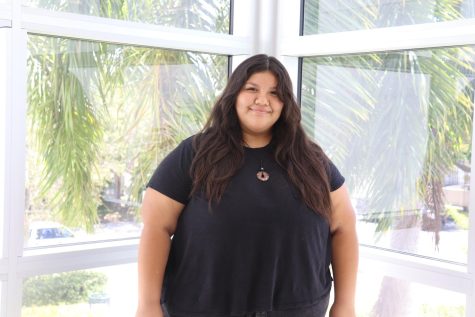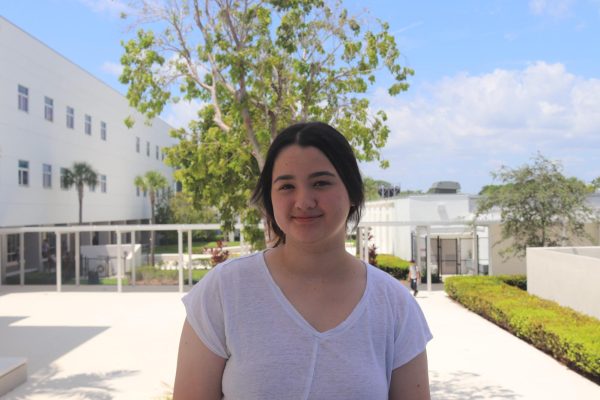FACEOFF: Is Daylight Savings Good Or Bad?
November 20, 2021
Good (A.G.):
Daylight savings recently ended on Sunday, Nov. 7, 2021. As many make a return to a time that causes the sun to rise earlier in the morning and set earlier in the afternoon, there is debate on whether daylight savings is for the better or worse.
Although many people oppose daylight savings and argue for its abolition, daylight savings has many positive impacts on the world.
Many may not know that darkness in the morning is much safer than darkness in the afternoon. In the afternoon, there is an increase in traffic as people head back from work or other activities during the busiest time of the day — rush hour. In the afternoon drivers are also more likely to have consumed alcohol, causing children to be at risk of fatal injuries and deaths due to the number of children playing on the streets after school.
In addition, people tend to commit more crimes during the darker time of the day. Daylight savings can lower crime rates since it allows for an extra hour of sun in the afternoon. Not only do robbery rates decrease by an average of 51 percent once daylight savings starts, but Stanford University has used data from the National Incidence-Based Reporting System showing that murder cases have also decreased by 48 percent.
Saving energy is one of the most important benefits of daylight savings. Due to the fact that daylight savings take away one hour of the day, it allows for one hour’s worth of energy to be saved. Having more light in the afternoon also enables the sun to generate more energy, rather than wasting electricity. Also, it requires less oil and natural gas to heat homes and businesses, which can decrease carbon emissions.
Daylight savings is an inherently great thing that happens every year on May 14. Not only is there an overwhelming amount of evidence that proves its effectiveness, but daylight savings can provide numerous positive outcomes for citizens, including a safer environment for all.
Bad (V.A.):
Daylight savings is such a hassle in so many ways. It causes unwanted schedule changes, lack of sleep and decline in productivity.
Oftentimes, many think of daylight savings time and get excited about all that they can get accomplished with the extra hour of light. In reality, the human circadian clock does not change just because of the time change. Everyone’s bodies are still accustomed to the original time prior to the start of daylight savings. This essentially means that people become less productive, rather than the opposite.
There is even a day called “Sleepy Monday,” which is the Monday right after daylight savings, beginning on March 14. The name — coming from the lack of sleep people get because of the time change — indicates that few get enough sleep throughout the day, potentially resulting in additional exhaustion.
On top of this, the time change leads to it becoming darker outside quicker throughout the afternoon. This can affect drivers and pedestrians negatively in many ways. The faster it darkens outside, the more stressful it is to drive, especially for new drivers. Fatal accidents occur more often during the night than during the day; those who decide to go for a walk or an afternoon jog are at risk of not being seen and potentially being injured by someone driving on the road alongside them.
From Mar. 14 to Nov. 7, everyone’s schedules change in one way or another. With the change in time, many must alter their schedules in order to accommodate the earlier setting of the sun. This way, people can add more to their schedules like clubs, sports and time to spend with friends and family.
However, now that the clock is moving one hour behind, people do not have that same capability of allowing themselves to add more events and tasks to their daily routines.
In some cases, daylight savings has its benefits, but when one looks at the whole picture, it is not as beneficial as many would think.










